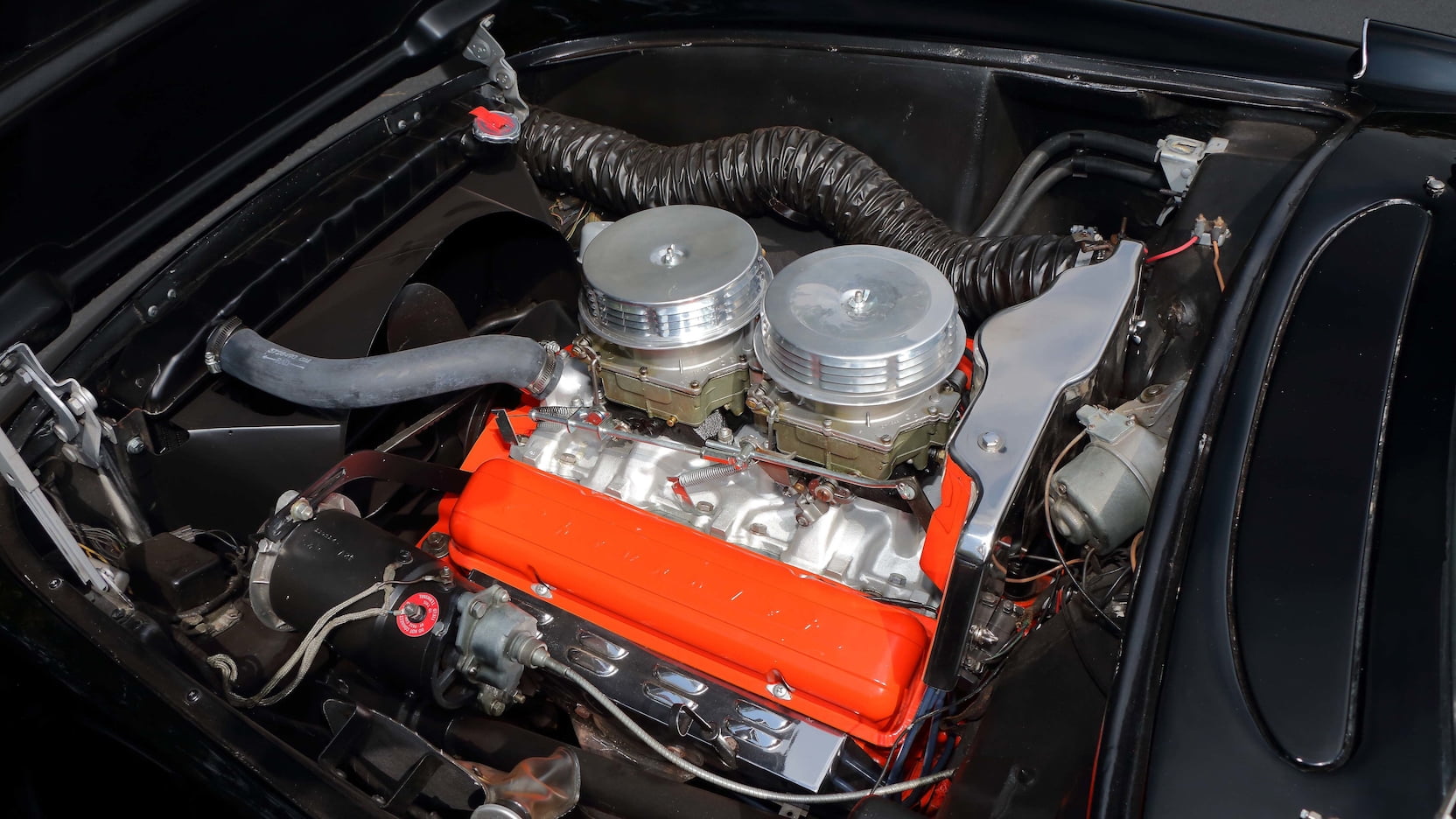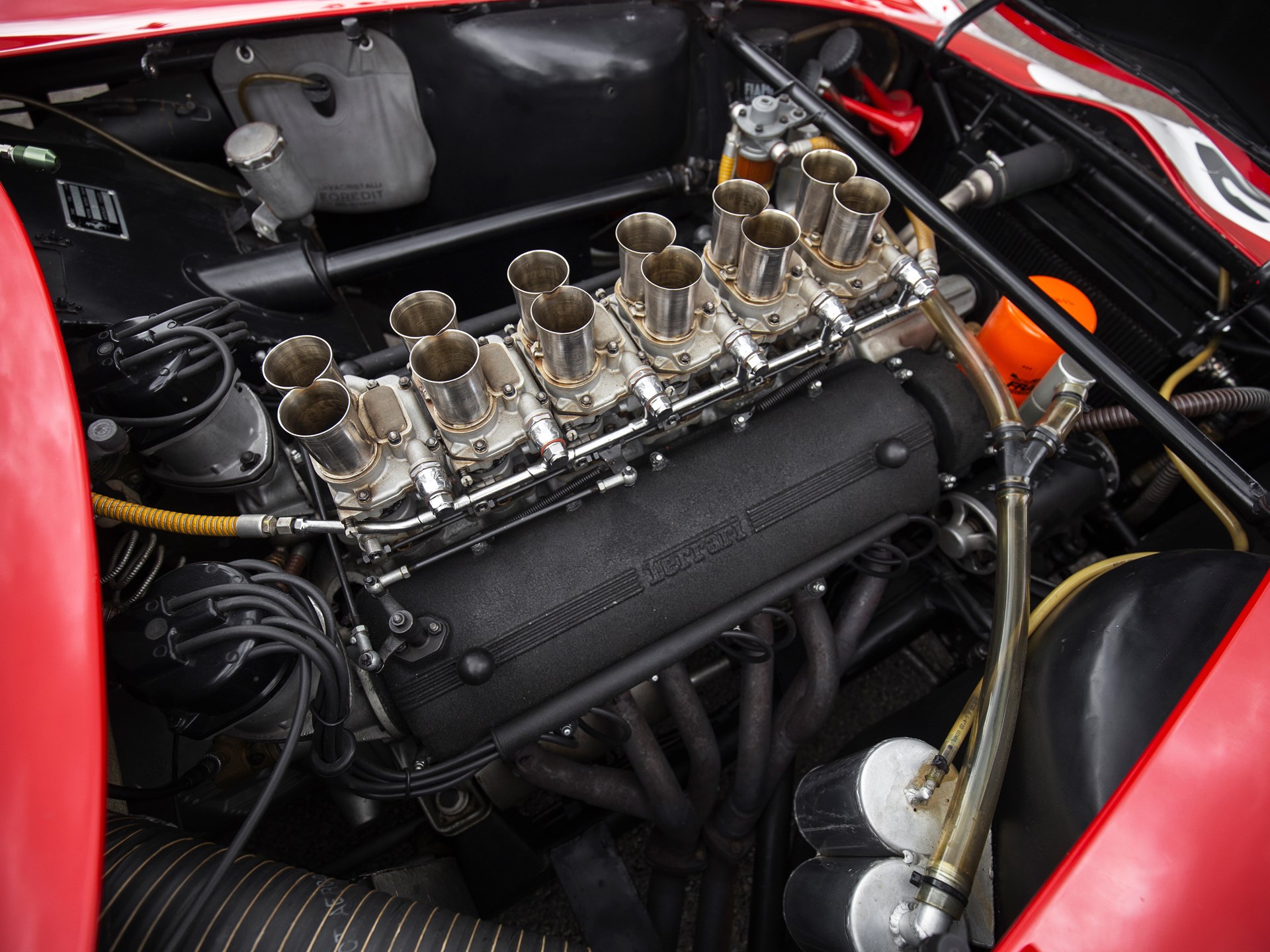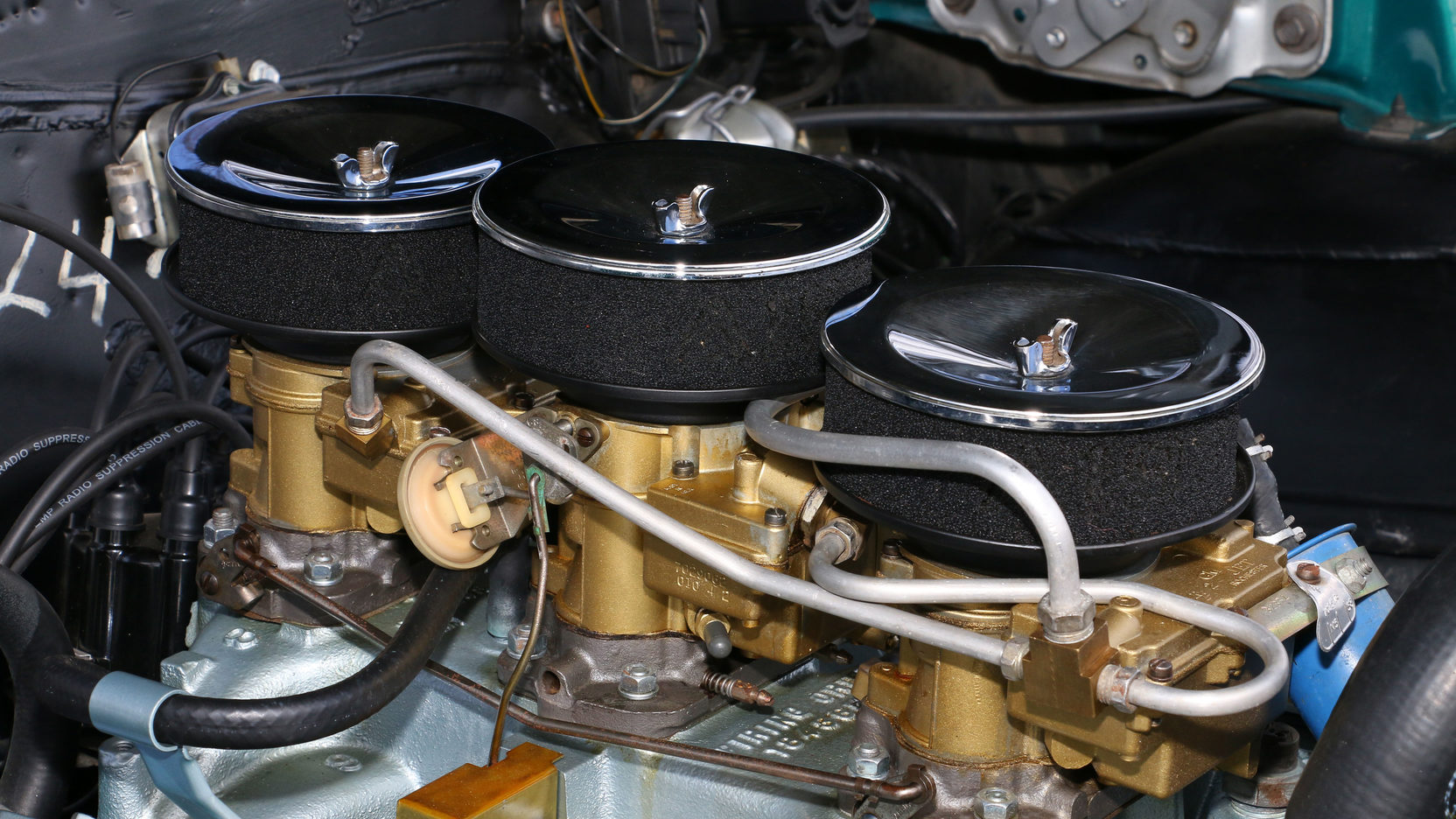Winners and losers: Multi-carb induction setups
The added complication of multiple carburetors is quickly eclipsed by the visual cool factor they bring to the underhood setup. Sure, getting them dialed in and the engine running perfectly can take sensei-like patience and experience, but once enlightenment (or at least balance) has been achieved the driving experience is worth it.
Here are our selections for winners and loser when it comes to multi-carb induction.
Losers
Chevrolet 265 with Dual Four-Barrels

Chevrolet seemed to follow a theory of “if one is good, two must be better” when it bolted another Carter WCFB four-barrel to the C1 Corvette’s aluminum intake manifold. Atop the small-ish 265-cubic-inch V-8 rated at 225 horsepower, the rumor mill says the second four-barrel found its way into the engine bay as more of a marketing ploy than an actual performance enhancer. It’s easy to believe, as doubling the carburetion only netted 15 additional horses. With each carb flowing between 375 and 500 cfm by most estimates, and feeding just 265 cubes, the dual-quad setup is simply more than this little engine needs.
Mopar 413 Long Tube Cross Ram

On the surface, the Cross Ram dual four-barrel setup aims to take advantage of all the under-hood room Mopar built into their cars more than 50 years ago. There is also some science involved with the high-volume intake runners meant to provide performance gains by having the tall “stack” of air on the back of the intake valve ready to be inhaled. Best known for creating stump pulling torque, these intakes look downright goofy.
MG Midget Dual SU HS2

With just 1000cc of British mill to feed, the solution of twin SU carburetors is a complicated way to arrive at a proper air and fuel mixture on a 1962 MG Midget. Notoriously finicky, the SU carbs take a lot of time to tune. Oftentimes the person tuning the carbs doesn’t know when to stop. Once the dual-carb setups are running good, they should be forgotten about. If left alone they continue to work charmingly. But it isn’t fun getting them there.
Winners
Ferrari Colombo V-12

The sonorous melody of a small displacement V-12 certainly borders on a siren song for some, while the appearance of six two-barrel Weber carbs settled between two long, wrinkle-painted valve covers is pure artwork for others. With the minimal air cleaners, like those in the 250 GTO, the intake noise can match the exhaust in terms of character. The looks though are sublime. Tightly arranged in a single-file line, the only competition for this many trumpets involves a high school marching band.
Corvair 140-hp flat-six

The antithesis of the MG above, the Corvair not only packs on twice the one-barrels, it has enough power to justify the complexity. Four single-venturi Rochesters bolt directly to the cylinder heads and function on a progressive linkage. Just one carb on each side handles the airflow until about 70-percent throttle, when the linkage then brings the secondary carbs to the party. The stock linkage can be a pain at times, as 50 years can be unkind to the pivots and connections required to make the two sides of the engine function harmoniously. Working as designed though, the much-maligned Corvair becomes an absolute riot to drive.
Pontiac Tri-power

Pontiac wasn’t the first to put three carbs in a row, but the way the tri-power fits the character of the GTO is just perfect. The tri-power was good for a 25-horsepower bump on the 1965 LeMans GTO. The setup was pretty simple—idle and part throttle were handled by the smaller center carb, and when the pedal went to the floor the linkage opened up the front and rear carburetors to match. Sadly, Pontiac took the cool factor away in 1967, as mandated by GM, and we were stuck with four-barrels from then on.

